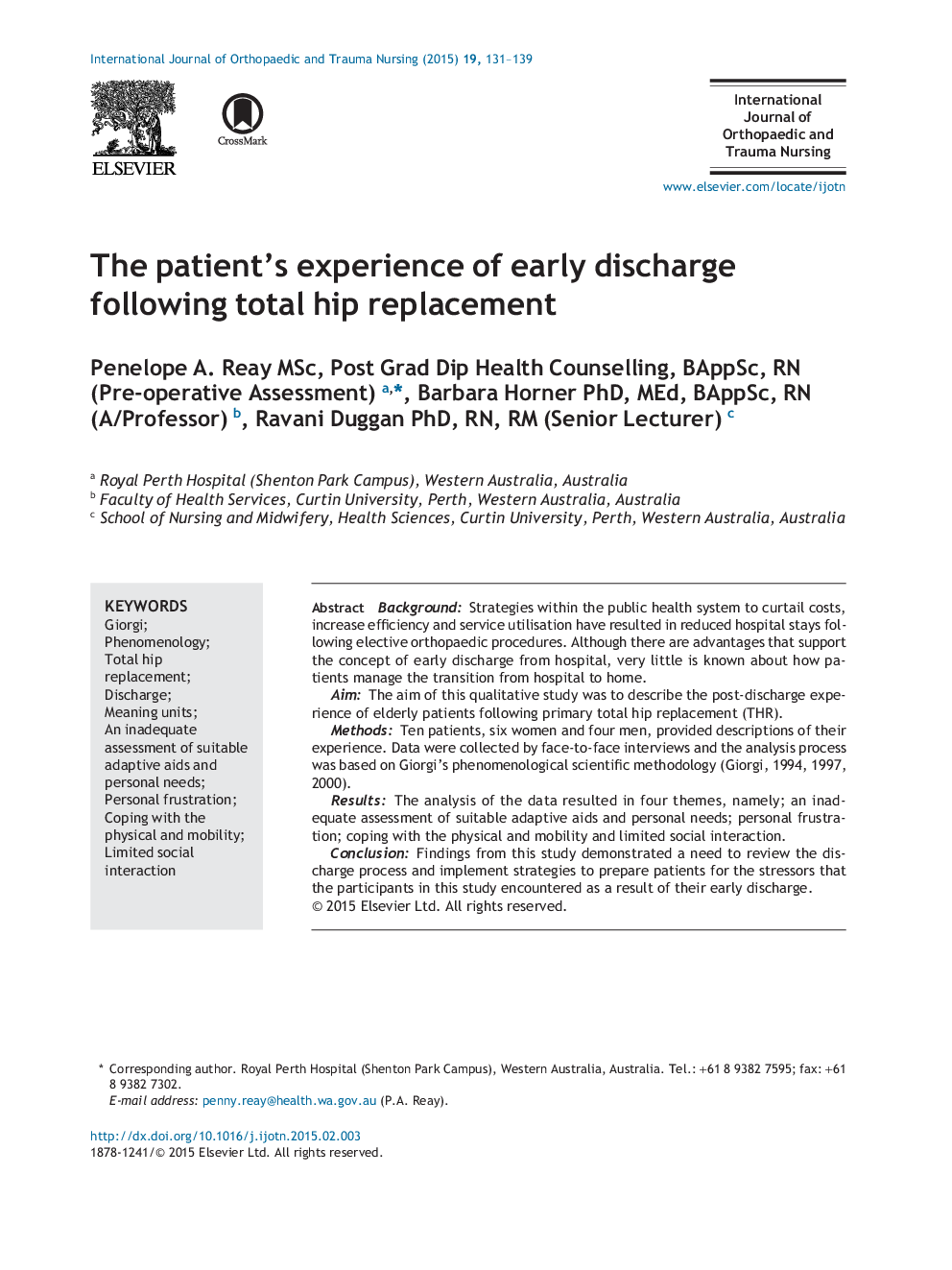| Article ID | Journal | Published Year | Pages | File Type |
|---|---|---|---|---|
| 2653172 | International Journal of Orthopaedic and Trauma Nursing | 2015 | 9 Pages |
BackgroundStrategies within the public health system to curtail costs, increase efficiency and service utilisation have resulted in reduced hospital stays following elective orthopaedic procedures. Although there are advantages that support the concept of early discharge from hospital, very little is known about how patients manage the transition from hospital to home.AimThe aim of this qualitative study was to describe the post-discharge experience of elderly patients following primary total hip replacement (THR).MethodsTen patients, six women and four men, provided descriptions of their experience. Data were collected by face-to-face interviews and the analysis process was based on Giorgi's phenomenological scientific methodology (Giorgi, 1994, 1997, 2000).ResultsThe analysis of the data resulted in four themes, namely; an inadequate assessment of suitable adaptive aids and personal needs; personal frustration; coping with the physical and mobility and limited social interaction.ConclusionFindings from this study demonstrated a need to review the discharge process and implement strategies to prepare patients for the stressors that the participants in this study encountered as a result of their early discharge.
